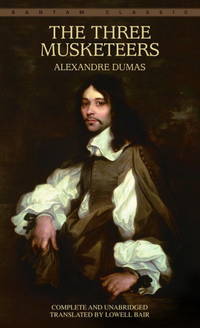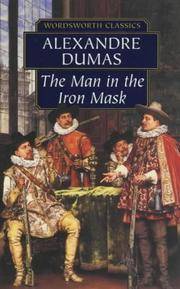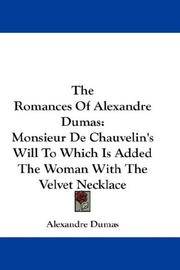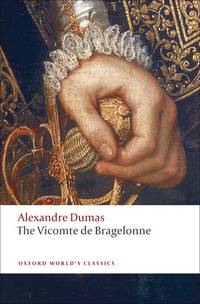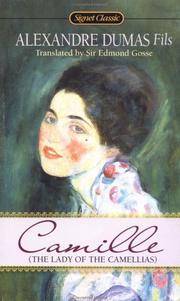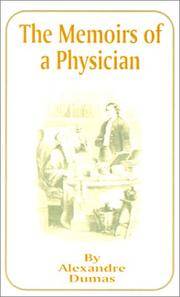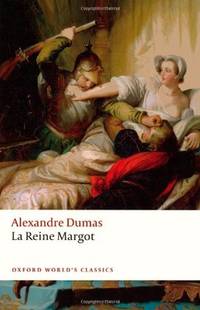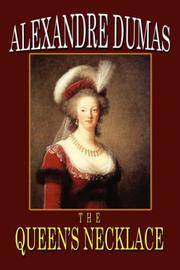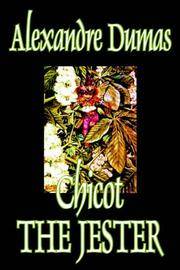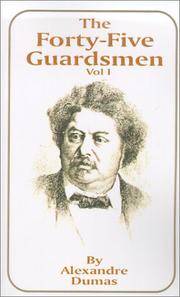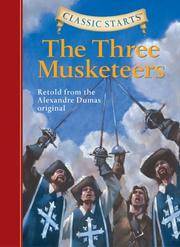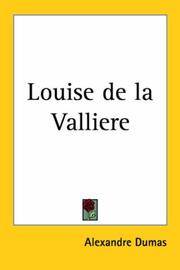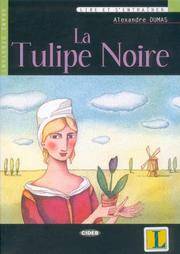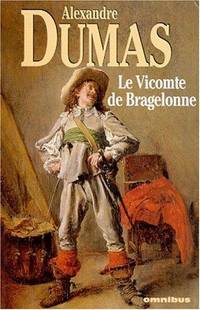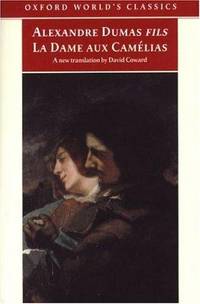Many of his novels, including
The Count Of Monte Cristo and the D'Artagnan
Romances, were serialized, and he also wrote plays, magazine articles, and was a prolific correspondent. His paternal grandmother was a
Black slave.
While his grandfather, Marquis Antoine-Alexandre Davy de la Pailleterie, served the government of France as General commissaire in the Artillery in the colony of Saint Domingue (now Haiti), he married Marie-Cesette Dumas, a black slave. In 1762, she gave birth to his father, Thomas-Alexandre, and died soon thereafter.
When the Marquis and his young mulatto son returned to Normandy, slavery still existed, and the boy suffered as a result of being half black. In 1786, Thomas-Alexandre joined the French army, but to protect the aristocratic family's reputation, he enlisted using his mother's maiden name. Following the French Revolution, the Marquis lost his estates, but Thomas-Alexandre Dumas distinguished himself as a capable and daring soldier in the revolutionary army, rising through the ranks to become a General by the age of 31.
Thomas-Alexandre married Marie-Louise Elisabeth Labouret and on July 24, 1802 and in Villers-Cotterets, Aisne, near Paris, France, she gave birth to their son,
Alexandre Dumas, who would become one of France's most commercially successful authors.
General Dumas died in 1806 when Alexandre was only four years old, leaving a nearly impoverished mother to raise him under difficult conditions. Although Marie-Louise was unable to provide her son with much in the way of education, it did not hinder young Alexandre's love of books, and he read everything he could get his hands on.
Growing up, his mother's stories of his father's brave military deeds during the glory years of
Napoleon I of France spawned Alexandre's vivid imagination for adventure and heroes. Although poor, the family still had the father's distinguished reputation and aristocratic connections and after the restoration of the monarchy, twenty-year-old Alexandre Dumas moved to Paris where he obtained employment at the Palais Royal in the office of the powerful duc d'Orleans.
Literary career
While working in Paris, Dumas began to write articles for magazines as well as plays for the theatre. In 1829 his first solo play, Christine, proved equally popular and as a result, he was financially able to work full time at writing. However, in 1830, he participated in the revolution that ousted King Charles X and replaced him on the throne with Dumas' former employer, the duc d'Orleans, who would rule as Louis-Philippe, the Citizen King.
Until the mid 1830s, life in France remained unsettled with sporadic riots by disgruntled Republicans and impoverished urban workers seeking change. As life slowly returned to normal, the nation began to industrialize and with an improving economy combined with the end of press censorship, the times turned out to be very rewarding for the skills of Alexandre Dumas.
After writing more successful plays, he turned his efforts to novels. Although attracted to an extravagant lifestyle, and always spending more than he earned, Dumas proved to be a very astute business marketer. With high demand from newspapers for serial novels, in 1838, he simply rewrote one of his plays to create his first serial novel. Titled "Le Capitaine Paul," it led to his forming a production studio that turned out hundreds of stories, all subject to his personal input and direction.
From 1839 to 1841 Dumas, with the assistance of several friends, compiled an eight-volume collection of essays on famous criminals and crimes from European history, including essays on Beatrice Cenci and Cesare and Lucrezia Borgia and more recent incidents including the cases of executed alleged murderers Karl Ludwig Sand and Antoine François Desrues.
Dumas also collaborated with his fencing master Augustin Grisier in his 1840 novel
The Corsican Brothers as well as Dumas's memoirs.
In 1840, he married an actress, Ida Ferrier, but continued with his numerous liaisons with other women, fathering at least three illegitimate children. One of those children, a son named after him, would follow in his footsteps, also becoming a successful novelist and playwright. Because of their same name and occupation, to distinguish them, one is referred to as Alexandre Dumas pere, (French for father) the other as Alexandre Dumas, fils (French for son).
Alexandre Dumas pere wrote stories and historical chronicles of high adventure that captured the imagination of the French public who eagerly waited to purchase the continuing sagas. A few of these
Works are:
* Charles VII at the Homes of His Great Vassals (Charles VII chez ses grands vassaux), drama, adapted for the opera The Saracen by Russian composer Cesar Cui
* the D'Artagnan Romances:
-
Les Trois Mousquetaires, 1844)
-
Vingt Ans Apres, 1845)
- The Man in the Iron Mask" , of which the last part is the most known.
* The Count of Monte Cristo (1845-1846)
* Le maitre d'armes, 1840)
*
The Regent's Daughter (1845)
*
The Two Dianas (1846)
* the Valois romances
-
Queen Margot (1845)
-
La Dame De Monsoreau (1846)
-
The Forty-Five Guardsmen (1847)
* the Marie Antoinette romances:
- The Countess Dubarry", or "The Elixir of Life")
-
The Queen's Necklace (1849-1850)
- Six Years Later")
- The Mesmerist's Victim")
- The Knight of the Red House (1845)
* The
Black Tulip (1850)
* The Nutcracker (1844): a revision of Hoffmann's story, later adapted by Tchaikovsky as a ballet
* The Gold Thieves (after 1857): a play that was lost, and rediscovered by the Canadian Reginald Hamel researcher in the Bibliotheque nationale de France in 2004
* Le Chevalier de Sainte-Hermine, 1869): the novel was his last major work and was lost until its rediscovery by Claude Schopp was announced in 2005.
Dumas made extensive use of the aid of numerous ghostwriters of which Auguste Maquet was the best known. It was Maquet who outlined the plot of
The Three Musketeers and its sequels, as well as several of Dumas' other novels. When working together, Maquet proposed plots and wrote drafts, while Dumas added the details, dialogues, and the final chapters.
His writing earned him a great deal of money, but Dumas was frequently broke or in debt as a result of spending lavishly on women and high living. The large and costly Chateau de Monte Cristo that he built was often filled with strangers and acquaintances who took advantage of his generosity.
When King Louis-Philippe was ousted in a revolt, Dumas was not looked upon as favorably by the newly elected President, Charles Louis Napoleon Bonaparte. In 1851 Dumas fled to Brussels, Belgium to escape his creditors, and from there he traveled to Russia where French was the second language and his writings were enormously popular. Dumas spent two years in Russia before moving on to seek adventure and fodder for more stories. In March of 1861, the kingdom of Italy was proclaimed, with Victor Emmanuel II as its king. For the next three years, Alexandre Dumas would be involved in the fight for a united Italy, returning to Paris in 1864.
Despite Alexandre Dumas' success and aristocratic connections, his being of mixed-blood would affect him all his life. In 1843, he wrote a short novel,
Georges, that addressed some of the issues of race and the effects of colonialism. Nevertheless, racist attitudes impacted his rightful position in France's history long after his death on December 5, 1870.
In June 2005, Dumas' recently-discovered last novel The Knight of Sainte-Hermine went on sale in France. Within the story, Dumas describes the Battle of Trafalgar in which the death of Lord Nelson is explained. The novel was being published serially and was almost complete by the time of his death. A final two-and-a-half chapters was written by modern-day Dumas scholar Claude Schopp.
Posthumous recognition
Buried in the place where he had been born, Alexandre Dumas remained in the cemetery at Villers-Cotterets until November 30, 2002. Under orders of the French President, Jacques Chirac, his body was exhumed and in a televised ceremony, his new coffin, draped in a blue-velvet cloth and flanked by four men costumed as the Musketeers: Athos, Porthos, Aramis and D'Artagnan, was transported in a solemn procession to the Pantheon of Paris, the great mausoleum where French luminaries are interred.
In his speech, President Chirac said: "With you, we were D'Artagnan, Monte Cristo or Balsamo, riding along the roads of France, touring battlefields, visiting palaces and castles, with you, we dream." In an interview following the ceremony, President Chirac acknowledged the racism that had existed, saying that a wrong had now been righted with Alexandre Dumas enshrined alongside fellow authors Victor Hugo and Voltaire.
The honor recognized that although France has produced many great writers, none have been as widely read as Alexandre Dumas. His stories have been translated into almost a hundred languages, and have inspired more than 200 motion pictures.
Alexandre Dumas' home outside of Paris, the Chateau Monte Cristo, has been restored and is open to the public.




